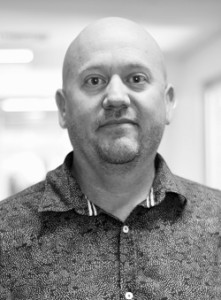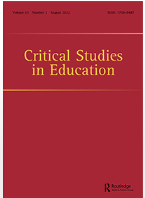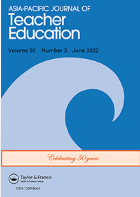Dr Greg Vass came into research provoked by significant changes in high school education, which were in part triggered with the introduction of standardised assessments and his involvement in professional learning related to Indigenous education.
 His PhD was a school-based autoethnography, analysing discursive practices with a view to understanding the reproduction of race, and the ways that schooling contributes to making race meaningful in the lives of learners.
His PhD was a school-based autoethnography, analysing discursive practices with a view to understanding the reproduction of race, and the ways that schooling contributes to making race meaningful in the lives of learners.
Since completing his doctoral studies, Greg has gravitated towards research in support of establishing culturally responsive schooling (CRS), which has links with race critical literacies and asset – or cultural wealth – based approaches to education. Greg says:
“Multicultural approaches to schooling have their limits, and we need the next generation of teaching and learning practices to identify and address these limitations. CRS looks at the contestations of knowledge – and emphasises active knowledge making practices. It is concerned with intercultural knowledges and fluency – hence it deals with issues of identity, and sense of self in relation to the worlds we move through.”
Ultimately, CRS is motivated by efforts to develop the capacities, skills and understanding of educators and learners to act on and in the world – it is about socio-political consciousness.
Greg’s earlier undergraduate studies in and around anthropology and ethno–musicology were the genesis of much of this work. Greg studied the relationship between Indigenous bands like Yothu Yindi and the popular world music scene, sparking his interest in this area of curriculum and becoming immersed in the politics in terms of the relationship between non-Indigenous and Indigenous Australia.
“There’s that lightbulb moment where you realise your own learning through the primary and secondary sector, massively misrepresented the socio-historical relationship between Indigenous and non-Indigenous Australia. And, that this continues on into the present in very problematic ways. You can’t go back to thinking and doing the way you did before.”
Once Greg became a teacher, this awakening and thinking was present.
“I wanted to change the way I approached teaching, so that the students I worked with would not get to their young adulthood and realise the history and cultural milieu of contemporary Australia had been misrepresented.”
Working with Gubbi Gubbi scholar Associate Prof. Kevin Lowe,Gomeroi researcher Associate Prof. Nikki Moodie (and others) since 2016, the team have conducted a collection of systematic reviews in a host of different areas including curriculum, pedagogy, professional learning, anti-racism and community engagement.
The systematic reviews have funnelled down into a whole of school reform model for Indigenous education, called Culturally Nourishing Schooling (CNS). Greg and the team have developed a trial that started with five schools, and now involves eight across NSW, to implement this model as part of their strategic plan.
Greg says:
“Whilst there’s been a lot of investment in this space, there’s been little improvement shown in terms of academic achievement, retention, attendance and other factors. What we distilled from these systematic reviews are those important fragments of what is positive and encouraging in Indigenous led education research and schooling practices. This is the basis of the culturally nourishing model of schooling we are currently road testing.”
Culturally nourishing schooling draws on research both in Australia and abroad and can be described as an assets-based or cultural wealth-based approach to education.
On the impact of this work, Greg says:
“The ideas and changes in practice need to genuinely be sustainable and live on past the life of the project. Once the project and funding ends, it will be the extent to which the local communities feel they have the capacity to continue implementing change and participating in decision making for these schooling practices over time that determines the success and longevity of the project.”
The team currently have a book in production as the next stage of this project, it will be published later this year, Assessing the Evidence in Indigenous Education Research: Implications for Policy and Practice (Eds. Moodie, Lowe, Dixon & Trimmer). Greg is also a part of an ARC Indigenous Discovery project, which also involves Associate Prof. Kevin Lowe, along with Prof. Annette Woods and Dr. Emma Burns. This study is an investigation of the history and science curriculum in NSW and Queensland, which both work with the national curriculum in different ways. One of the key aims of this study is to explore the constraints that stem from the framing of the curriculum itself, which arise for many educators in their efforts to embed Indigenous knowledges, histories and perspectives in teaching and learning.
Working in this sphere is inherently motivating, as Greg says it is ‘nourishing’ at multiple levels, for the researchers, the community and the teachers involved – and of course the learners that are central to schooling.
“For many that gravitate to the orbit of culturally responsive schooling, we start to see how the ideas and practices being talked about help to insulate and protect those involved in education from how abrasive the current policy environment. This is particularly in terms of encounters with what have been described as high-stakes accountabilities and the influences of standardisation in education. The positivity and enthusiasm can be quite inviting and revitalising. Those of us involved in the CNS project see that work is valued and appreciated, and of a scale and depth, that to our knowledge isn’t being undertaken in Australia at this point.”
Read more about this fascinating work on Greg’s Experts profile and in the links below:

Can we keep up with the aspirations of Indigenous education?



